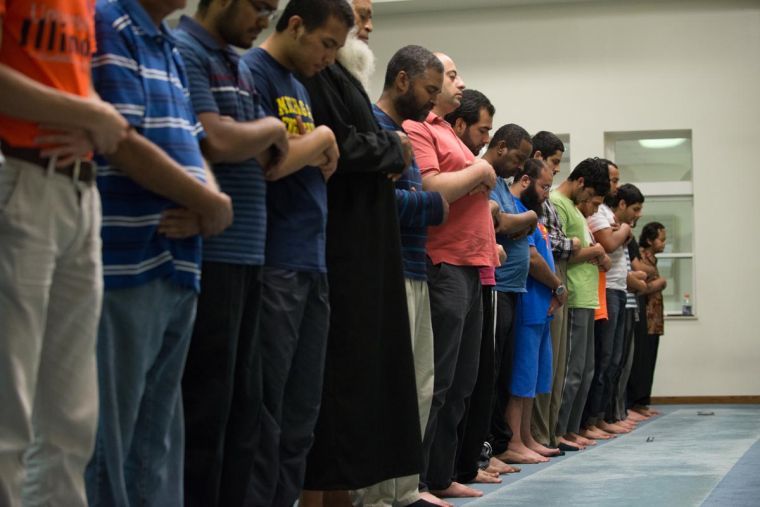Local Muslims begin observing Ramadan
Men pray at the Central Illinois Mosque & Islamic Center in preparation for Ramadan, which began on the 28th of June.
June 30, 2014
Long summer days mean more hours of sunlight, but for practicing Muslims across the world, it also means waiting longer to break their fasts during the holy month of Ramadan.
Ramadan, based on the lunar calendar, made its annual return this year starting June 28. For 30 days, Muslims will fast from sunrise to sunset, eating and drinking only after dark.
Because Ramadan follows the lunar calendar, the day on which it falls according to the Gregorian calendar shifts about ten days every year. So while twelve years ago, Ramadan took place in the winter, it now falls in the summertime.
“But at the same time, it reminds me that it’s not meant to be easy,” said Hajira Ahmed, sophmore in LAS. “It’s a matter of doing what God tells us to do. We do something that’s really hard for an entire month. Ramadan is about coming together as a community and reminding ourselves about that.”
Hanan Jaber, junior in LAS, said the longer days can actually serve as a benefit rather than a hurdle.
Get The Daily Illini in your inbox!
“It’s definitely not a short time, but those things are trivial,” Jaber said. “I don’t think it matters so much whether it’s summer or winter. Yeah, in the summer it means the days are longer, but it’s more time to gain the rewards of fasting.”
The Central Illinois Mosque and Islamic Center in Urbana holds nightly Taraweeh prayers, which are special prayers that take place each day of Ramadan after followers break their fasts.
The attendance is representative of the diversity present within Islam as well as within the local community.
“You see the unity of Islam — we’re all praying side by side, it honestly doesn’t matter where you come from,” Jaber said. “There is tolerance amongst cultures, which is something beautiful.”
Shazia Siddiqi, a senior in AHS, said what she loves most about Ramadan is the sense of brotherhood and sisterhood that comes with it, and the unity for a common goal.
“It’s a really good boost for me,” Siddiqi said. “It helps me get through the day to know there are 2 billion people fasting alongside me.”
The mosque also hosts nightly dinners prepared by community members. Often a group of people from one nationality will come together to cook for that night, with a different country’s food being served each day throughout the month.
The gatherings for meals and prayers also serve as a way for followers to connect and visit with one another and share their experiences.
“It’s a really great feeling because the whole community comes together — you can really see that,” Ahmed said. “It’s nice to see so many people who understand how I feel and I understand how they feel.”
The month of Ramadan will continue until July 27.
“It’s this thing that I look forward to every year, as I think a lot of people do,” Jaber said.
Abrar can be reached at [email protected].







